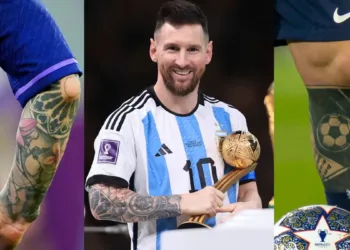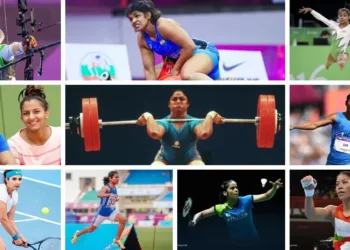Ange Postecoglou’s Tottenham tenure came to a dramatic and puzzling end, despite delivering the club’s first piece of silverware in 17 years. The decision to part ways with the manager who led Spurs to Europa League triumph over Athletic Bilbao stunned many fans who, just weeks before, had cheered his name in a jubilant trophy parade through North London.

So why would a club release a figurehead who broke the drought and united a disoriented fanbase? The answer lies in a complex mixture of tactical volatility, deteriorating league form, injury mismanagement, strained fan relations, and ultimately, Daniel Levy’s decision to step off a rollercoaster ride that thrilled and terrified in equal measure.
Table of Contents
A Promising Start That Faltered
Postecoglou’s early impact was undeniably positive. The “rolling xG” data highlighted a surge in attacking intent and defensive organisation during the initial months of the 2024–25 season. Spurs looked reborn. But that promise slowly gave way to erratic performances. Their attacking structure began crumbling, defensive errors crept in, and the balance that had defined their early success disappeared.

This fluctuation left fans oscillating between confusion and hope. Were they watching a good team playing badly, or a flawed team getting lucky on occasion? The Europa League campaign provided moments of clarity, but the domestic inconsistencies were jarring.
The Worst League Campaign in Decades
For all the European glory, Tottenham’s league performance was catastrophic. Seventeenth in the Premier League was their worst finish since 1977. The 22 defeats equaled their most ever in a single campaign. A 57.9% loss rate—the highest in club history—highlighted a historic collapse. Finishing behind clubs like Wolves, West Ham, and Manchester United was more than embarrassing; it was financially damaging too, with Spurs missing out on approximately £36 million in prize money compared to the previous season.
Their Elo rating—a metric used to gauge team strength—also took a nosedive under Postecoglou, further underscoring the collapse after early optimism.
Injuries and Tactical Stubbornness
Postecoglou has always accepted accountability. “Every decision that is made is on me,” he said in January. Injuries, however, were unavoidable. For nearly four months, Spurs were without Cristian Romero and Micky van de Ven—their defensive bedrock. Guglielmo Vicario missed three months. Midfield creators Dejan Kulusevski and James Maddison also suffered long absences. At one point, only Pedro Porro had played more than 75% of available minutes.

But the sheer number of muscular injuries raised eyebrows internally. There were concerns over player management, particularly the rushed returns of Romero and Van de Ven for a crucial December clash with Chelsea, which saw both re-injured. Postecoglou’s training demands, combined with a high-octane philosophy, may have exacerbated the issue.
Angeball’s Rise and Retreat
Postecoglou’s high-risk approach—known as “Angeball”—produced thrilling highs, including 4-0 and 4-1 thrashings of City, Villa, and West Ham. Spurs ran further and pressed harder than most sides, posting season-high metrics like 119.8km against Manchester United. But this intensity came at a cost. When key players were missing, the system crumbled.
Opponents exploited the overcommitted full-backs and lack of defensive cover. “You can kill them,” said one rival Premier League coach, pointing to the huge spaces Spurs left behind.

By late December, particularly after a 6-3 defeat to Liverpool, Postecoglou had begun to abandon his principles. His side played deeper, pressed less, and shifted to more traditional setups. Pragmatism over purity—yet this change laid the groundwork for Europa League success.
European Glory vs. Domestic Disarray
The triumph in Bilbao wasn’t just a trophy—it was validation. Postecoglou had shifted focus to Europe in January, protecting top stars and gambling the season’s success on one competition. That choice paid off, but at a cost: just one win in the final 12 league games, including losses to relegated Ipswich and Leicester.
Fans were left to reconcile the contradiction: a team capable of conquering Europe yet incapable of consistent domestic performances. Was the league collapse forgivable, considering the ultimate prize?
Fractured but Repaired Fan Relationship
Postecoglou’s rapport with fans deteriorated through the season. At Bournemouth, jeers echoed. At Stamford Bridge, a substitution was met with boos and the chant “You don’t know what you’re doing.” Postecoglou responded defiantly, cupping his ears—an act that some viewed as disrespectful.

But the Europa League win rekindled that bond. During the trophy parade, chants of his name filled the streets. He was the inspirational figurehead Spurs had sought when they hired him. For many, his speech promising more in season three felt like a turning point. That promise, however, will remain unfulfilled.
Postecoglou the Lone Wolf
The Australian’s style of leadership was unique. He was distant, seldom indulging in casual conversations. Some players described him as an “angry bear.” But his pre-match speeches, his emotional manipulation, his reminders to “get on that wall” with the legends of the past—all had an effect. Bringing back Bissouma for the final stretch showed how he could extract performances others couldn’t.
Postecoglou wasn’t loved by all, but he commanded respect. His squad remained loyal, even during turbulent months. Unlike Mourinho or Conte, he left without losing the dressing room.
Daniel Levy’s Final Decision
Postecoglou’s exit wasn’t hastily decided. It had long been assumed he would leave after his second season. Even after the Bilbao high, Daniel Levy paused before confirming it. He took a week, went on holiday, and ultimately decided he didn’t want a third ride.

The logic? Across two full league campaigns, Spurs took 104 points—losing 34 games and winning only 31. Since November 2023, their form rivalled only Everton and Wolves among non-relegated sides. And in 2025–26, they’ll be juggling a Champions League campaign with high domestic expectations. Was Postecoglou the right man to handle that dual pressure?
Read More: Why Liverpool’s Pursuit of Florian Wirtz Justifies a Record-Breaking Fee
FAQs
Why did Spurs sack Postecoglou after winning a trophy?
Despite Europa League success, Tottenham finished 17th in the league—its worst in decades—forcing Levy to act.
How did injuries impact Tottenham’s season?
Key players like Romero, Van de Ven, and Vicario missed months, derailing Postecoglou’s high-intensity system.
Was ‘Angeball’ to blame for their poor form?
Partly. The attacking style exposed defensive gaps, especially with backups struggling to fill key roles.
Did fans want him gone?
The fanbase was split. Many forgave the league failures after Bilbao, while others backed Levy’s decision.
Was this always the plan?
Yes. It was expected Ange would leave after two years. The league collapse confirmed that decision for Levy.








